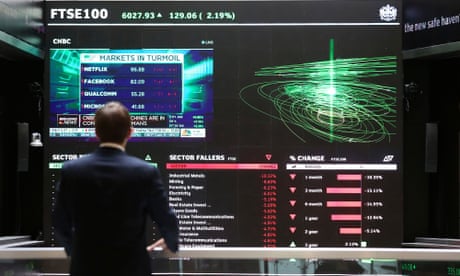
The monstrous attempted murders in Salisbury, allegedly authorised by the Russian state, were shocking. Expelling diplomats, limiting attendance at the World Cup, and orchestrating international condemnation through the UN and Nato are good symbolic gestures. But they will not stop Russian state-inspired terrorism taking place in the UK.
Wouldn’t it be far more effective to clamp down on Russian use of Britain as a safe haven for illegal wealth? Britain has become the jurisdiction of choice for kleptocrats, crooks and money launderers – including Russians – because of our weak regulatory framework, shrouded in secrecy and very lightly policed.
Our historic reputation for integrity and trustworthiness is being undermined by the rapid growth of illicit wealth that is brought into or through the UK and its tax havens. The National Crime Agency estimates that £90bn of criminal money is laundered through the UK each year. That is 4% of the UK’s GDP – and the estimate is probably conservative.
Much of the money goes into buying UK properties. Global Witness claims 85,000 properties across the UK are owned by companies that are incorporated in UK tax havens. According to Transparency International, almost one in 10 of the properties in the City of Westminster are owned by companies registered in an offshore jurisdiction. Many of the houses are bought and then left to lie empty; Indeed, Kensington and Chelsea’s electoral roll has declined by 8% since 2010, while the UK as a whole has experienced a 3% increase in its electorate over the same period. So who is buying homes in the borough, and why are they leaving them empty?
Britain has always been open and welcoming, and there are many people from other countries who want to come and live here for good reasons who make a great contribution to our society. But we need to know that those buying our houses are doing so for legitimate reasons, and with clean money.
In 2015, David Cameron promised to introduce a register detailing the beneficial owner of all UK properties. But the government has just announced this will not happen before 2021. If we really want to stop corrupt money – from Russia and elsewhere – being used to acquire British homes the government could implement Cameron’s undertaking immediately. And it should strengthen the checks and balances on company formation: the laxness of current rules makes it too easy for crooks to set up corporate entities through which they might launder money.
Consider Scottish limited partnerships. These were created in 1907 to help Scottish farmers invest in their land but limit their liability. But when you set one up, you are not required to name an actual person as a partner: you simply cite a company, often located in a tax haven. The reporting requirements for Scottish partnerships are minimal: there is no need to file accounts at Companies House, no requirement to have a UK bank account, and no need to pay UK tax.
This allows the creation of anonymous and untraceable entities for potentially laundered money. Unsurprisingly, there was a 430% increase in the creation of Scottish limited partnerships between 2007 and 2016. In 2016 alone, 94% of the new partnerships were set up by corporate partners, and more than seven out of 10 of these were based in tax havens.
Last year the government required newly formed partnerships to register the names of the person with significant control in a company. A quarter of the new Scottish partnerships have failed to reveal this information. Of those that did complete the register, 30% were Ukrainian, 16% were Russian and just 8.7% were British.If we simply required better information about those who set up UK corporate entities, we could stem the flow of dirty money into Britain. All we need do is ask for a birth certificate or passport so we can assess the legitimacy of both the individual and their money.

We should also strengthen the way our corporate structures are policed. It’s ridiculous that just six people in Companies House are trying to check whether or not some 4m companies comply with the law and provide accurate information. It’s shortsighted to starve HMRC, the police, the Serious Fraud Office and the Financial Conduct Authority of the resources they need to stamp out corruption and tackle financial crime.
Finally a growing number of MPs from all parties want the government to implement another undertaking made by David Cameron in 2013. We need public registers of beneficial ownership in our tax havens so that the public, the media and civil society knows who owns the companies that hide their identity and their wealth in these secret jurisdictions. Transparency would at a stroke stop tax havens being used for corrupt purposes by criminals from Russia and elsewhere. The government could use the anti-money laundering bill currently being considered by parliament to do this.
Take these actions. Then the Russians would know that when we say we will not allow unlawful acts by states or criminals to pass without punishment, we mean it.
No comments:
Post a Comment